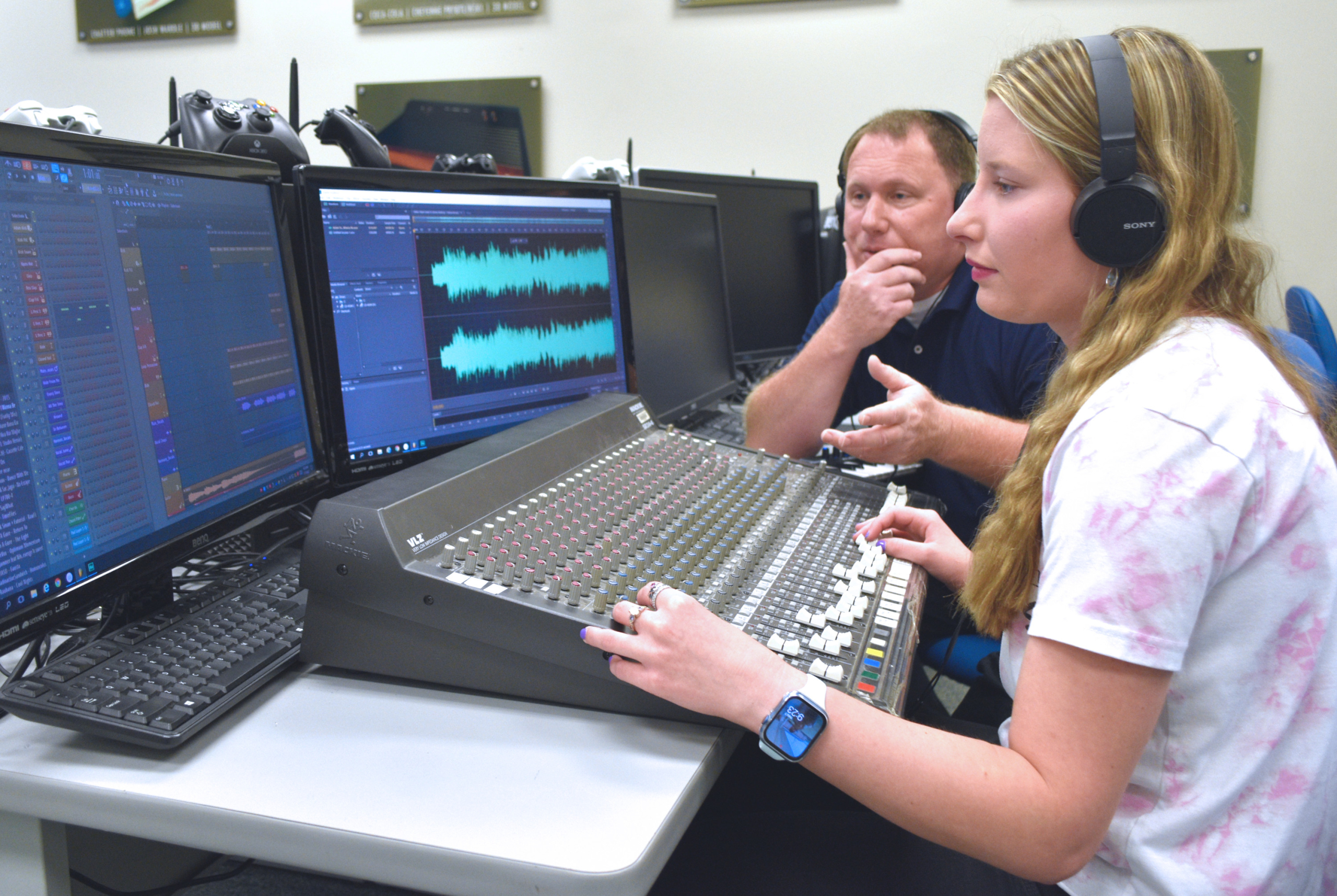Wayne Community College is adding a new major in what is projected to be one of the fastest growing fields through the end of the decade.
The Entertainment Technology program, which will start in the fall 2022 semester, will train the broadcast, sound, and video technicians that the U.S. Bureau of Labor Statistics says will continue to be in demand.
The trend toward virtual work, online entertainment, and higher production values for in-person occasions means there is greater need for the folks who produce these materials and events, explained David Vinciguerra. WCC is ready with the necessary training, and he will be the lead instructor.
Starting in Fall 2022, Wayne Community College will introduce the Entertainment Technology program that provides formal production training focusing on sound recording, concert lighting, electronic music production, and marketing/promotion.
“More people are turning to the internet and YouTube and away from traditional media. Content creators will be needed, not just artists and talent but also the production side,” Vinciguerra said. “For example, with COVID, so much went online – schools were teaching online and a lot of work environments have gone virtual. Suddenly they need video and audio production. We’ll be meeting needs that are already here.”
Employment opportunities can include entry-level crew and production assistants in concert or event setups; with recording, sound, or lighting companies; and artist career management.
Concert venues, houses of worship, recording studios, event companies, schools, businesses, even social media influencers, are just some of the potential employers of graduates of the new program, Vinciguerra said, and there are plenty of these in every community.
WCC will offer an associate in applied science degree in Entertainment Technology and five certificates: Audio Engineer; Entertainment Management; Entertainment Technology; Entertainment Technology Promotion and Marketing; and Social Media and Entertainment. Students can earn individual certificates or their associate degree.
Classes are taught either face-to-face or hybrid (traditional classroom with an online component) to provide students access to industry-standard hardware, software, and training.
Vinciguerra said that bringing students together on the campus instead of offering this program online is important, not only so they can use the college’s equipment, but also so they can have the advantage of each other’s creativity and can do group work.
Courses cover music, web graphics and design, sound production, concert lighting, marketing and promotion, entertainment law, recording engineering, electronic music, and artist management.
One requirement for graduation is a capstone project. “This will be a semester-long project where the student is producing something with very little instructor input,” said Vinciguerra. “They are on their own like they will be in the field and maybe they record a band or produce a video.”
Potential students are already contacting him, Vinciguerra said. “I’m very excited about the group that we have signing up. I can see the excitement in their eyes.”
One of those students who has already committed to the program is Hayley Rabon, who just earned a degree in Simulation and Game Development from WCC in May 2022.
Rabon wants a career in the film industry but she wasn’t ready to go off to a four-year college right after high school. “I started looking at programs that Wayne Community and I found a program that I thought would be able to benefit me in the long run – Simulations and Game Development. I knew that program would teach me a lot of good skills that I would need one day,” she said.
“I decided to sign up for this program because, for one, I will still be able to be close to home, and secondly, because it sounds exactly like some of the stuff that I’m looking for. I will be able to work with sound, concert lighting, and more,” she said.
“I’m glad Mr. Vinciquerra is teaching it because I loved having him as a teacher for simulation and game development and I know he will be a fantastic fit for this,” Rabon said.
“I can really identify with the students,” Vinciguerra said. He was once where Rabon is now.
Vinciguerra came to WCC straight out of high school, seeking a program like the one he is starting now because he “wanted to learn how to record bands.” He ended up earning an associate in arts degree at WCC, then transferring to East Carolina University where he earned both a bachelor’s and a master’s degree in Communications. He then taught there for eight years before taking a position at WCC in 2011 to teach in the college’s Simulation and Game Development program.
Now Vinciguerra is implementing the program that he sought decades ago. It will be the only associate degree-level Entertainment Technology program in eastern North Carolina.

